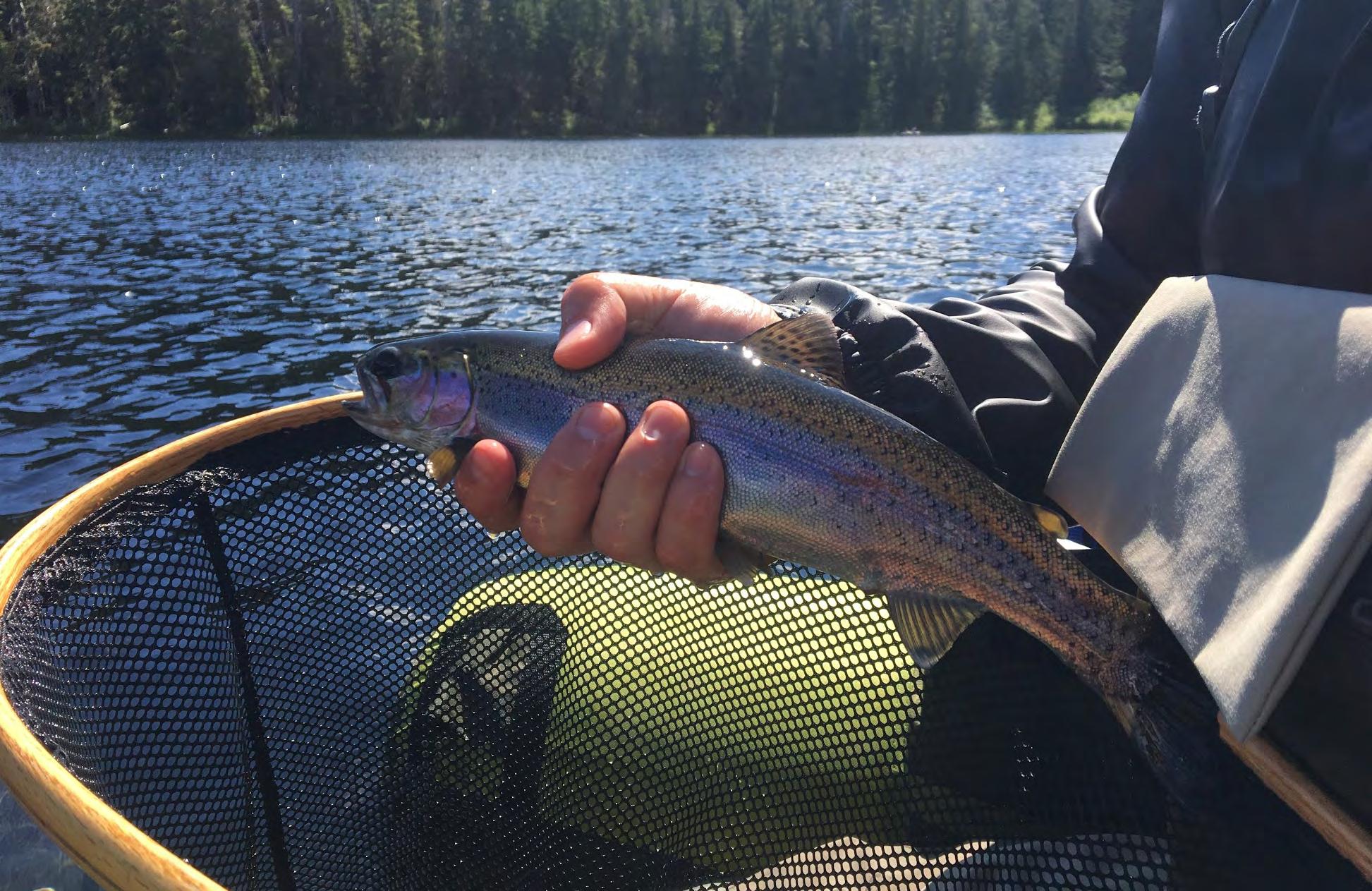
1 minute read
Conservation genomics gap
Managers of wildlife are faced with decisions and issues that are increasingly complex. A strong evidence base is needed to support these complex decisions. Genomics research – a relatively new field of scientific knowledge – uses genome-wide information (complete systematic mapping of DNA) that can be applied to conserve biodiversity and manage species and populations.
Conservation genomics is often promoted as a beneficial management tool for management. However, we found that in the case of managed Rainbow Trout (Oncorhynchus mykiss) fisheries in the Canadian province of British Columbia a “conservation genomics gap” persists between fundamental research and applicable solutions for conservation practitioners.
Advertisement
Below: Rainbow Trout (Oncorhynchus mykiss)
© Andrew Kadykalo. All rights reserved.
Bio
Andrew Kadykalo is a PhD Candidate in the department of Department of Biology and Institute of Environmental and Interdisciplinary Science at Carleton University, Ottawa, Canada.
He is an interdisciplinary conservation scientist who applies natural and social science tools to address conservation problems. His research interests focus on regulating ecosystem services (e.g. pollination, flood regulation), and the use of evidence in wildlife management and conservation.
Contact
Twitter: @andykadykalo Email: andriy.kadykalo@gmail.com









